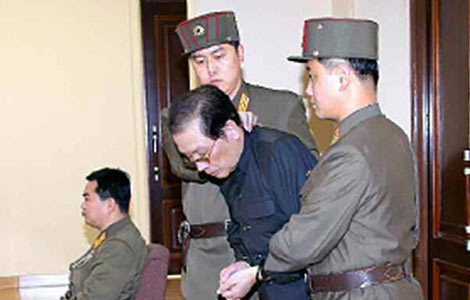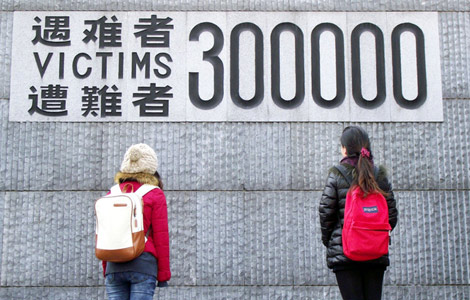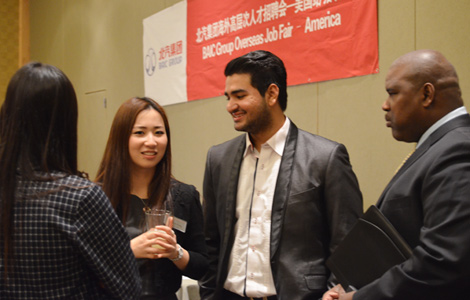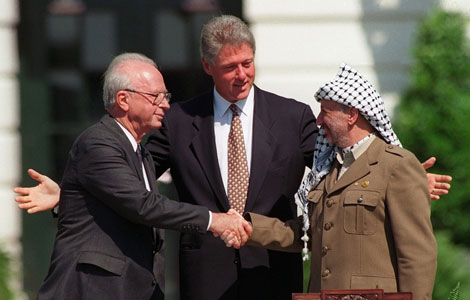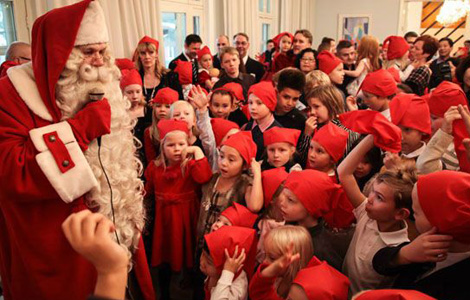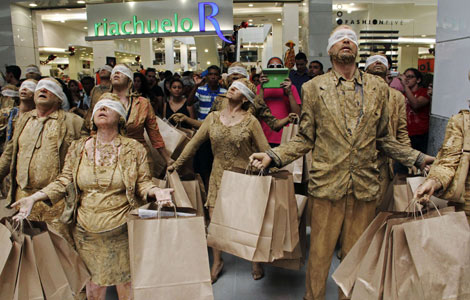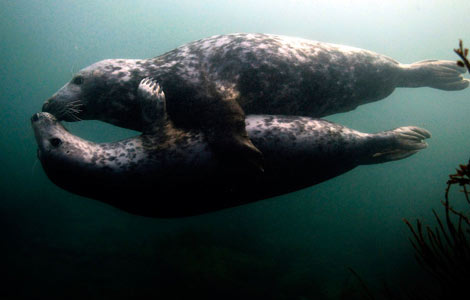Year of Snowden and his revelations
Updated: 2013-12-13 07:00
By Chen Weihua (China Daily)
|
||||||||
 There is no doubt in my mind that former US National Security Agency contractor Edward Snowden should have been Time magazine's Person of the Year in 2013. So I was quite surprised when the editors announced on Wednesday their choice was Pope Francis. Not because I am not Catholic or even religious. But if the Person of the Year is someone who has done the most to influence the world in 2013 for better or worse, then Snowden should have had no competitor this year.
There is no doubt in my mind that former US National Security Agency contractor Edward Snowden should have been Time magazine's Person of the Year in 2013. So I was quite surprised when the editors announced on Wednesday their choice was Pope Francis. Not because I am not Catholic or even religious. But if the Person of the Year is someone who has done the most to influence the world in 2013 for better or worse, then Snowden should have had no competitor this year.
Snowden's revelations since early June awakened the whole world - government, corporations and ordinary people alike.
People have realized that they are under massive surveillance, through various NSA programs, such as PRISM, XKeyscore and Tempora, and the mining of telephone metadata. They have had to redefine the word privacy.
People have been debating how much of their privacy they should relinquish for the sake of national security, a rationale that has been excessively abused by politicians in the United States over the past decade.
Snowden's revelations came as the US was busily attempting to label China a major hacker against the US, and showed that whatever China or any other country is doing in cyberspace simply pales to insignificance compared with the actions of the NSA. The NSA has not only hacked into China's cell phone and telecom companies as well as universities and hospitals, it has also spied on many other countries, including many of its allies, as well as 35 world leaders.
Last week, Alan Rusbridger, the editor of The Guardian newspaper in the United Kingdom, said that his paper had published only 1 percent of the 58,000 files passed on by Snowden. If 1 percent of Snowden's disclosures are so damning of the US, it's hard to imagine what the impact would be if the remaining 99 percent is also made public.
This explains why the US government went mad after Snowden's disclosure and its failure to press China (more specifically, the Hong Kong Special Administrative Region) and later Russia, to hand over Snowden. I never understood why the US government would even consider the notion that other governments would hand over someone who had just revealed the extent to which the US is spying on them.
While Snowden is widely seen as a hero and a whistleblower, the US government and many US politicians have tried hard to paint him as a criminal and traitor. The US federal prosecutors have charged Snowden with violating the 1917 Espionage Act.
The NSA surveillance is so rampant that eight major US technology companies, such as Google, Facebook, Yahoo and Microsoft, published an open letter in mainstream US newspapers on Monday, calling for an end to the massive snooping by US intelligence agencies.
If not for Snowden, people around the world would be living a lie, blithely believing that the privacy of their e-mails, phone calls and other Internet activities were safeguarded.
I don't know why Time magazine did not select Snowden as the Person of the Year. Hopefully it is not because that the controversial nature of his revelations inside the US. It is certainly not controversial at all in the rest of the world.
Unlike Time magazine, several other publications share the same opinion as me. On Monday, The Guardian declared Snowden its Person of the Year based on a public vote. In total, Snowden garnered 1,445 votes, while Pope Francis received only 153.
If the arrival of Pope Francis has been a breath of fresh air, the revelations by Snowden have been an earthquake whose shockwaves have been felt around the world. Time magazine got it wrong. There was no one more influential this year.
The author, based in Washington, is deputy editor of China Daily USA.
chenweihua@chinadailyusa.com
(China Daily 12/13/2013 page8)
Most Viewed
Editor's Picks

|

|

|

|

|

|
Today's Top News
Foreigners stay cool to insurance
DPRK's Jang Song-thaek sentenced to death
Chinese Fulbrights 'internationalize' campuses
Sinopec's front woman in the US
Slowdown seen in petroleum use
Apple sends in experts to probe employees' deaths
China,US consider the other side a rival
China's publishing of data welcomed
US Weekly

|

|
